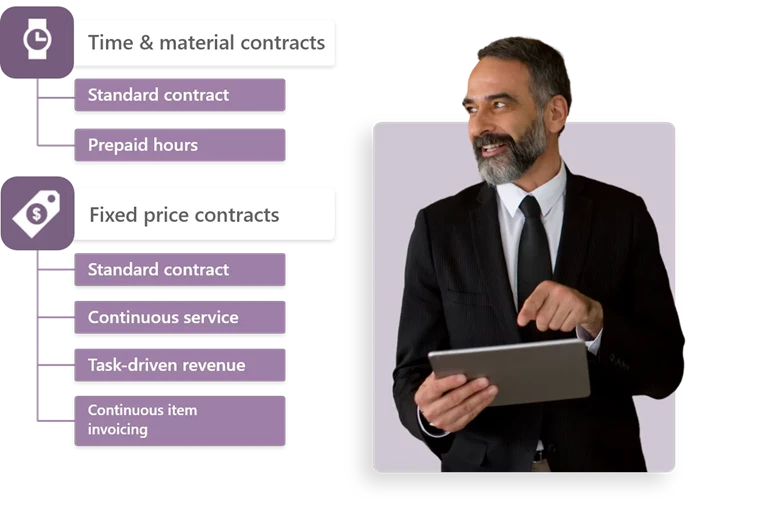The invoicing process is the consultancy’s lifeblood
12 min read
Time tracking
Build your perfect data foundation for spotless invoicing and deep business insights with easy time tracking.
Project management
Be a world champion project manager. Keep your projects on track - and profitable.
Resource management
Efficiently staff projects and run a predictable business with confidence.
Insights & Reporting
Get smarter - faster - to make clever decisions for long-term growth impact.
Project accounting & Invoicing
Invoice everything - fast and accurate - while staying on top of project finances.
Staff & Salary
Give accountants and HR an intelligent tool to eliminate draining administration.
Financial Systems
TimeLog offers standard integrations for all your favourite financial systems. Save time and reduce manual tasks.
Payroll Solutions
TimeLog offers standard integrations for multiple payroll solutions. Get easy salary administration and only enter payroll information once.
Add-ons
Track time automatically via Outlook, use gamification or find another add-on that can support your business.
Multiple Legal Entities
You can create synergy between your departments and across borders and offices with the Multiple Legal Entities module from TimeLog.
Business Intelligence
Utilise the insights you get from TimeLog to the fullest. Our system is ready to integrate with multiple BI solutions.
Partner Integrations
TimeLog PSA is part of a large ecosystem. Get an overview of all the partner integrations in the TimeLog family.
Economy department
Save 1-2 days a month on your invoicing process.
Project teams
From planning to execution and evaluation. Robust tools for every project manager.
Management teams
Create a performance-driven culture with solid reporting capabilities.
Large enterprises
Enhance operations and performance across entities, countries and departments.
NGOs and non-profit organisations
Simplify internal processes, spend less time on administration, and get documentation in place - at a discounted rate.
Blog
Get inspired to run an even better business with articles, guides and analyses.
Guides, podcasts and webinars
Get access to templates, guides and webinars that help and inspire you.
Help Center
Looking for help material and user guides to the TimeLog system? Look no further. Find all the help you need now.
Get a single source of truth
Discover how companies maintain a single source of truth across borders, departments, and currencies.
Get integrated
Discover the advantages customers gain from utilising our integrations and API.
Reporting in real-time
Explore how others leverage reporting to optimise their processes and make informed decisions.
Get started with resource planning
Discover how other companies thoroughly grasp their resources and enhance their ability to predict future trends.
Improved project financials
This is how the efficient financial toolbox from TimeLog helps project managers and CFOs improve their project financials.
Faster invoicing
Discover how other companies have slashed the time spent on invoicing by 75% - and uncover how you can achieve the same efficiency.
The Story of TimeLog
Get insights on TimeLog and how we can help you grow and evolve your business.
Employees
See who shows up every day to deliver the best PSA solution.
Career
What's life like at TimeLog? Are we hiring? Get the answer here.
Partner
Create even more value for your customers, as well as ours, as a TimeLog Partner.
Premium Service
Online Help Center, tailored onboarding and support from Day 1.
Corporate Social Responsibility
We work to ensure a positive impact on planet, people and businesses.
Security and GDPR
Learn more about how we work to keep your data safe and provide maximum security.
2 min read
Is it possible to mix the invoicing principle with the production principle? Yes. It makes excellent sense for consultancy firms.

The consultants of a consultancy firm are the engines that keep the business running – and, as such, the core of the firm’s activities and earnings. That’s why all consultancy firms dream of employing consultants capable of invoicing all billable hours at the maximum hourly rate. In real life, however, this is rarely the case.
To achieve an impressive turnover, consultants and management alike need to stay current on the amount of value generated by the firm’s employees every hour and whether the hourly value is at risk from overrun.
For most consultancy firms, the consultants are free to prioritise their work and, to some extent, delivery. Consequently, granting consultants access to their own key figures can be monumentally significant in achieving results. The sequence of jobs, for instance, can significantly affect turnover, just as delivery impacts the hourly rate.
So why are only a minority of consultancy firms using structured and ongoing communication to present generated values and contribution margins to their consultants?
The answer is simple: collecting and presenting data on projects, finances and value generation before they’re in the system and before the project is finished is time-consuming, expensive and complex.
Financial management in small to medium-sized consultancy firms is often based on three principles:
This model is simple for financial controllers but often useless as a day-to-day tool for management and employees. It’s simply too unrefined and slow.
In other words, the financial system best suits the invoicing principle (the least time-consuming one). In contrast, the company is better off being managed according to the production principle, in which turnover on projects and for consultants is not defined by when invoicing is carried out but by when the work is put in.
So why not think outside the box and mix the principles? Run your financial system after the invoicing principle and your company after the production principle. Several of our customers have benefited from this model, in which ongoing reporting on finished work is based on the production principle using figures retrieved from TimeLog PSA.
To some accountants, this seems a ludicrous idea. After all, it will unbalance the system’s turnover, which is communicated externally, and the time registration and project management system, which is communicated internally.
This drawback is offset, however, by each project manager, consultant and manager having constant access to the latest value generation figures from updated time registrations, regardless of whether your project is based on
The spread between generated value and invoiced value is simply ongoing work, which the auditor can access at the end of the financial year.
It couldn’t be simpler.

8 min read
 Read more
Read more
 Read more
Read more

5 min read

62 min read